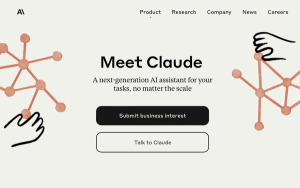When we document or create processes, we do more than capture information or design new ways of working; we contribute to an open, transparent and ‘healthy’ culture.
I was reminded of this working with a client recently; the client didn’t have good processes and documentation, and this was contributing to a ‘Power Culture’.
A Power Culture
A Power Culture is one where knowledge is used as currency or power to create hierarchy, authority and control.
Knowledge is not openly shared or freely available and becomes the domain of the manager, an individual or ‘the chosen few’. Knowledge is tribal and is only communicated verbally and on a need-to-know basis for tactical or political gain.
A Power Culture is not good for business
To be clear, a Power Culture is not a good thing; imagine been a remote worker or new starter in a Power Culture where doors are closed, and information is withheld; imagine the stress and worry of trying to complete tasks in a void.
A power Culture poses five significant issues for the business.
- Creates barriers
Tasks take on a mystical power; they become important, complex, requiring expertise to complete, they become ‘senior’. In reality, many are straightforward, easily delegated and do not require special knowledge.
These barriers create operational pinch points and resourcing problems and perceived ‘glass ceilings’ within teams.
- Training is a nightmare
Training often takes the form of 121 sharing and becomes a task that often gets put off.
The ‘training’ takes too long and burns valuable time; more critically, training and knowledge sharing are inconsistent. Did the trainer share everything or keep something back? People take their own notes and ask different questions.
As a result, the business doesn’t know what capabilities exist within their teams.
- People and performance
A Power Culture doesn’t support high performance; individuals can feel resentful, asking, why am I not chosen to have this special knowledge? Why was that person chosen? How do I protect my position and my special knowledge?
This negative mindset influences behaviours, attitudes and engagement and is one in which no one benefits, the employee, business or customers.
- Creates inconsistency
People in the same team have varying knowledge and standards depending on how and who trained them and what knowledge was shared.
Inconsistency is a nightmare to manage; customer deliverables can vary, time taken to complete tasks can vary, and any data or reporting is compromised.
- The critical business risk
Knowledge leaves the business, and there isn’t a critical mass of knowledge in people or a catalogue of documentation to backfill.
Simply put, the business will not know how to run itself, deliver products and invoice customers.
It’s more complex than just creating a process map
My client didn’t realise that their lack of documentation was a problem, but simply creating documentation wasn’t the quick fix.
The elephant in the room is people and the behaviours, the ‘normals’ and reward structures that contribute and support the Power Culture.
If knowledge is power, then this leads to controlling relationships and behaviours. Manager-to-employee discussions might be based on parent-child behaviours or relationships.
This, in turn, will lead to employee resentments, frustrations and ‘kick back’ actions as they seek to create some sense of control in their world. The employee might resort to using knowledge as power, spreading the dysfunctional culture, show a lack of engagement based on anger and fear, or increased absenteeism in sickness or poor timekeeping.
Risks
Relationships based on a parent-child interaction create risks to the business because of the lack of trust and openness, examples:
- Parent-child engagement encourages the spread of unhelpful and unhealthy behaviours across the team.
- Negatively impacts employee wellbeing, potentially reducing productivity and increasing costs with higher sickness and attrition. Remember, people leave their manager, not the business.
- Siloed, closed and protected thinking reduces innovation and the organisations’ ability to implement change and adapt to new competitive opportunities or threats.
Five top tips when working in a Power Culture
Delivering projects, problem-solving, creating processes and implementing new ways of working in a Power Culture is problematic; five top tips and tactics:
- Recognise it.
It sounds simple, but it’s not always easy, particularly when it’s what you are used to. Acknowledging the culture you are working in will allow you to plan the project timelines and workshops and change actions accordingly. The work may take longer, require smaller steps to complete and need more project sponsor involvement.
- Slow down
People will be hesitant, resentful or simply refuse to share their hard-won knowledge or ‘power’ with a ‘stranger’ seeking to remove their status. Gently gently catchy monkey is the approach, talk big picture and remove the focus from the individual.
- Anticipate roadblocks
The act of documenting will create noise, resistance and actions to derail your work. People will say, ‘there is no point in capturing the processes’, or it’s a ‘waste of time’. Pick your battles, start small, show value and create trust.
- Eye on the prize
Find the problem that’s hurting the business and relates to your hesitant stakeholders. Show how a more open approach supports the business and helps resistant stakeholders in their day-to-day work. In my client, critical business knowledge was concentrated in one individual; the risk was the business couldn’t function if Covid struck.
- Find allies
Sometimes an authority figure, either by rank or influence, is needed to bang heads, lay the law down and ‘encourage’ engagement. Find these people, work with them, know what’s important to them, and wisely use their influence.
Give away to get more
As business owners or leaders, we need to lead by example. We set the tone for the ‘give away to get more’ culture; we show that we empower by creating clarity, openness, sharing, and trust.
We need to show and help people move past the tactical view of simply knowing to a higher level of application and improvement.
Guiding principle
If you are ever stuck, then remember, if you trust people, typically, they become trustworthy.
Business & Finance Articles on Business 2 Community
(46)
Report Post



